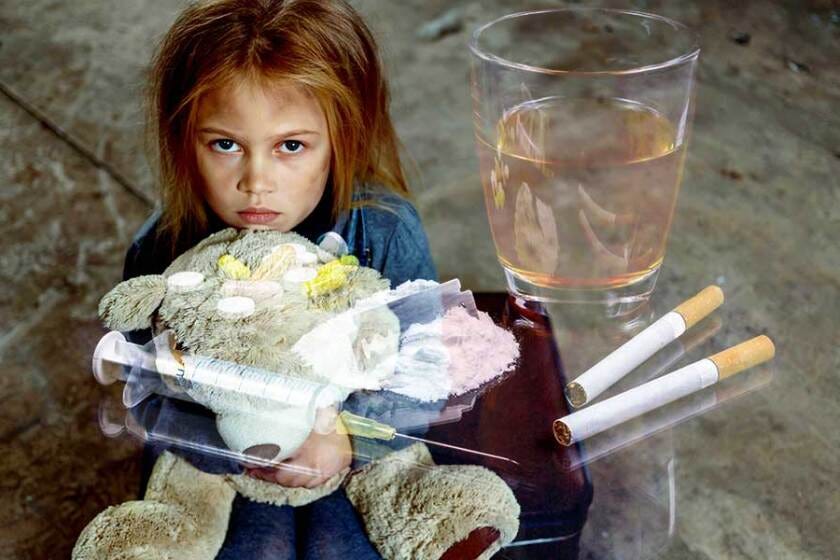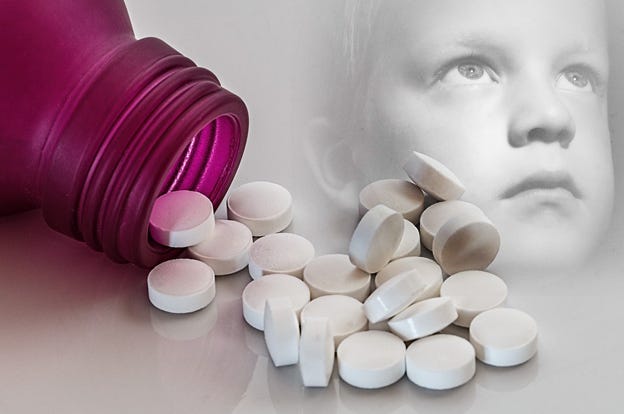A Family Crisis: Substance Use Disorders Harm 19 Million Children
Why Only the Love of God Can Break the Cycle
The statistics arrive with predictable bureaucratic precision: nineteen million American children currently live in households where at least one parent struggles with substance use disorders. Meanwhile, secular institutions continue proposing therapeutic interventions, policy reforms, and harm reduction strategies as though the human soul were merely another organ requiring clinical treatment. These well-intentioned efforts consistently miss the fundamental reality that Saint Augustine articulated centuries ago: our hearts remain restless until they rest in God.
The modern addiction epidemic represents far more than a public health crisis or economic burden requiring governmental solutions. Rather, it manifests as a profound spiritual starvation occurring within families across every socioeconomic stratum of American society. When parents seek fulfillment through chemical substances instead of divine communion, their children inevitably inherit a legacy of emptiness that worldly remedies cannot adequately address.
The Anthropological Reality of Spiritual Hunger
Contemporary culture persistently attempts to explain addiction through purely materialistic frameworks, reducing complex human longings to neurotransmitter imbalances or genetic predispositions. However, Catholic anthropology reveals a more comprehensive truth: human beings possess an inherent orientation toward the infinite that no finite substance can satisfy. When parents attempt to fill this God-shaped void with alcohol, opioids, or other substances, they inadvertently demonstrate to their children that ultimate fulfillment exists somewhere other than in relationship with their Creator.
Children absorb these lessons through observation rather than instruction. They witness their primary caregivers seeking relief, comfort, or transcendence through means that ultimately prove destructive. Consequently, these young souls learn to associate the deepest human longings with dangerous substitutes rather than with the Source who designed them for eternal communion.
The cycle perpetuates itself with tragic efficiency. Parents who themselves received inadequate spiritual formation during their childhood find themselves ill-equipped to guide their offspring toward authentic encounters with divine love. Instead, they model various forms of escapism, teaching their children that suffering should be avoided rather than offered as participation in Christ’s redemptive work.
Institutional Failures and Spiritual Poverty
American institutions have largely abandoned their traditional role in forming young people for meaningful relationships with God. Public schools systematically exclude religious formation from their curricula, treating faith as a private matter irrelevant to human flourishing. Healthcare systems approach addiction as a medical condition while ignoring the spiritual dimensions that often drive destructive behavior. Even many churches have diluted their message to accommodate secular sensibilities rather than proclaiming the demanding truth of the Gospel.
This institutional abandonment of transcendent purpose creates a vacuum that commercial interests eagerly exploit. Entertainment industries promote immediate gratification while pharmaceutical companies market chemical solutions to existential problems. Children growing up within this cultural matrix receive constant messages that happiness can be purchased, consumed, or achieved through external means.
Parents struggling with addiction often recognize their inability to provide the spiritual guidance their children desperately need. However, without access to robust Catholic communities that offer authentic formation, they remain trapped in cycles of shame, relapse, and spiritual confusion. Their children observe these patterns and frequently conclude that religion represents another failed remedy rather than the ultimate source of healing.
The Sacramental Path to Recovery
Catholic teaching offers a radically different approach to addressing addiction within families. The Church recognizes that human beings require regular encounters with divine grace through the sacramental system that Christ established for our sanctification. These sacred rituals provide supernatural assistance that therapeutic interventions alone cannot supply.
The Eucharist stands at the center of this sacramental healing. When parents regularly receive Holy Communion, they invite Christ to transform their deepest desires from within. This divine presence gradually reorients their hearts toward spiritual goods rather than chemical substitutes. Children who observe their parents approaching the altar with reverence learn that ultimate sustenance comes from God rather than from substances that promise temporary relief.
Confession provides another essential component of family recovery. Parents who regularly examine their consciences and seek absolution model humility for their children while receiving the grace necessary for genuine conversion. This sacrament acknowledges that human brokenness requires divine intervention rather than merely psychological adjustment or pharmaceutical management.
Sacred Scripture offers additional nourishment for families seeking freedom from addiction. Regular family prayer and biblical study create opportunities for encountering Christ through His revealed Word. Children who grow up hearing Scripture proclaimed and discussed within their homes develop familiarity with divine truth that can sustain them during periods of temptation or despair.
Parental Leadership in Spiritual Formation
The most crucial factor determining whether children will develop healthy relationships with God involves the quality of spiritual leadership they receive from their parents. Mothers and fathers who prioritize their own relationship with Christ through prayer, sacramental participation, and community involvement create environments where their children can naturally encounter divine love.
This responsibility extends beyond mere church attendance or ceremonial observance. Parents must actively cultivate interior lives that demonstrate the joy and peace that flow from authentic relationship with God. Children possess remarkable ability to distinguish between genuine faith and superficial religiosity. They will gravitate toward whatever brings their parents actual fulfillment rather than whatever their parents claim to value.
Parents struggling with addiction face particular challenges in providing this spiritual leadership. Their children may have witnessed religious hypocrisy or experienced abandonment during periods of active substance use. Recovery therefore requires parents to rebuild trust through consistent demonstration of transformed priorities and renewed commitment to family relationships.
The process demands patience, since spiritual healing typically occurs gradually rather than instantaneously. Parents must remain committed to their own formation even when their children initially respond with skepticism or resistance. Over time, children recognize authentic change and often become receptive to the same spiritual practices that facilitated their parents’ recovery.
Community Support and Ecclesial Responsibility
Individual families cannot address the addiction crisis without broader ecclesial support. Catholic parishes must create robust programs for adults seeking recovery while simultaneously offering comprehensive formation for children and adolescents. This dual approach addresses both immediate needs and long-term prevention within the same community context.
Effective parish programs recognize that addiction affects entire families rather than isolated individuals. They provide opportunities for spouses and children to receive appropriate support while maintaining focus on spiritual formation rather than purely therapeutic interventions. These programs emphasize prayer, sacramental participation, and community fellowship as primary sources of healing.
Catholic schools and youth programs bear particular responsibility for forming young people who have experienced family trauma related to addiction. These institutions must offer more than academic instruction, providing opportunities for genuine encounters with Christ that can heal spiritual wounds and establish foundations for healthy adult relationships.
The Urgency of Evangelical Response
The statistics surrounding childhood exposure to parental addiction demand immediate and comprehensive Catholic response. Nineteen million children currently hunger for the spiritual nourishment that only God can provide. They require parents who have encountered Christ authentically and communities that support family healing through sacramental grace.
This crisis will intensify without decisive action from Catholic institutions and individual believers. The secular world continues promoting solutions that address symptoms while ignoring root causes. Meanwhile, children suffer spiritual starvation that leads predictably toward their own struggles with addiction during adolescence and adulthood.
The remedy remains available through the ancient wisdom of Catholic tradition. Parents who commit themselves to regular prayer, sacramental participation, and community involvement can break generational cycles of addiction while leading their children toward authentic relationship with God. However, this transformation requires courage to embrace demanding spiritual disciplines rather than seeking easier alternatives that promise relief without conversion.
Catholic families possess access to supernatural resources that secular approaches cannot provide. The question remains whether parents will accept responsibility for their children’s spiritual formation or continue delegating this crucial task to institutions that lack authority to address humanity’s deepest needs. The eternal welfare of nineteen million children depends upon how Catholic adults answer this challenge in the coming years.







